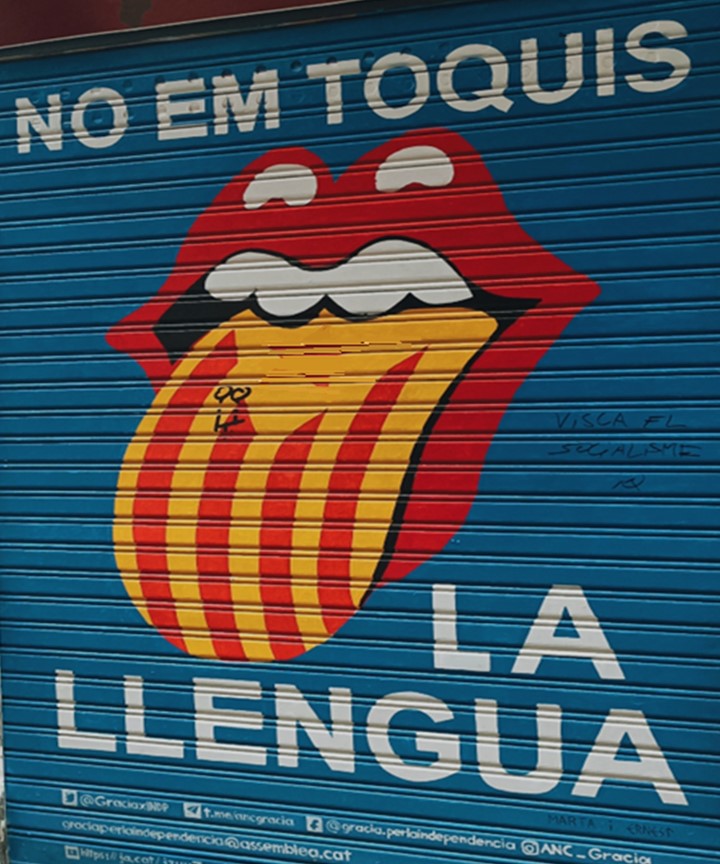
Aitana Bonmati, midfielder for FC Barcelona’s women’s team, won the Ballon d’Or 2023. Undoubtedly the world’s best player by some distance in the past year, she became at 25 years old the second youngest recipient of the award, which is just another one out of the long list that she has already received, collectively (for Barcelona and the Spanish national team) and individually.
In Spanish, she took to the stage to thank her teammates and the staff as she recognised the importance of working as a team to help her achieve this award. Then, Aitana switched. The most personal and emotional part of her speech had to be in Catalan. She proceeded to thank the three football clubs where she’s played throughout her life: Sant Pere de Ribes, Cubelles, and especially Barcelona, after which she highlighted the importance of the latter in supporting women’s football and taking a chance on their team when no one else was willing to do so. Who would’ve told young Aitana Bonmati that one day she would play at Camp Nou, full to the brim shouting her name?
She finally moved on to thank her friends and family, everyone who had been by her side throughout the journey but especially her parents, Rosa and Vicent, who looked on proudly at their daughter. She spoke about family, resilience, values, and the struggle.
But why the switch in language and why was it important?
Aitana’s mother tongue isn’t Spanish, it’s Catalan, a romance language spoken by over ten million people in four different countries: Spain, Andorra, France, and Italy (and no, Catalan is not only spoken in Catalonia). It is not, as some believe, a dialect of Spanish. She spoke it at home, at school, with her friends. It was expected she would use it in her speech, in particular, to speak to those she cares about.
Catalan has been spoken for many centuries, it is a Romance language derived from vulgar Latin, a variant of the Occitan one (fun fact: it is a part of the Gallo-Romance group, not the Ibero-Romance one, which makes it more closely related to French than Spanish) and its literary tradition dates back to the middle ages. It has survived over three hundred years of repressive policies in a state that was directly built upon the sustained sociopolitical and linguistic repression of its peripheral territories. As the proverb says “Spain was built in Castilian”.
But not everyone was happy about her language choice. Hundreds of people on X (previously known as Twitter) took to their keyboards to express their rage at the fact that she would dare to use it. How she’s shaming the nation. Calling her stupid. Saying she’s a clown. Ridiculing the fact she’s a woman and to top it off she speaks in Catalan.
Reactions like these only reflect the ever-present Spanish nationalist opinion towards the minority languages found in the Spanish State. That they are lesser than. Backwards. Rural. That they lack culture. A Golden Age of literature. These are the Spanish nationalists who will loudly proclaim that they love ‘everything’ about Spain, so long as that ‘everything’ is Castilian. Who consider languages not as instruments of knowledge, communication, and vehicles of social integration but rather as weapons of war.
For a country that has four co-official languages: Castilian Spanish, Catalan, Euskara (Basque), and Gallego (Galician) with a variety of dialectal forms, the lack of appreciation for the richness that these contribute is staggering. Speakers of the aforementioned minority languages are ridiculed, their contributions to Spanish society (and the culture they so like to claim they love) ignored, and the attempts to salvage the languages from the effects of hundreds of years of repression are thwarted, on accounts of discrimination (ironic) and betrayal. What is to be expected of a country that states that it’s a Constitutional duty to know Castilian? A country where no provisions were made in the constitution to facilitate linguistic rights other than a brief mention?
It is sad to say, but one does wonder whether if it had been Kylian Mbappé receiving the male Ballon d’Or who had done his speech in French anyone would’ve dared to bat an eyelash? And the answer would be no. Because that’s his mother tongue and we would have all accepted. So why is it different if Aitana Bonmatí does it in hers?
Image: Mar Mengual Gonzalez, 2022



Average Rating